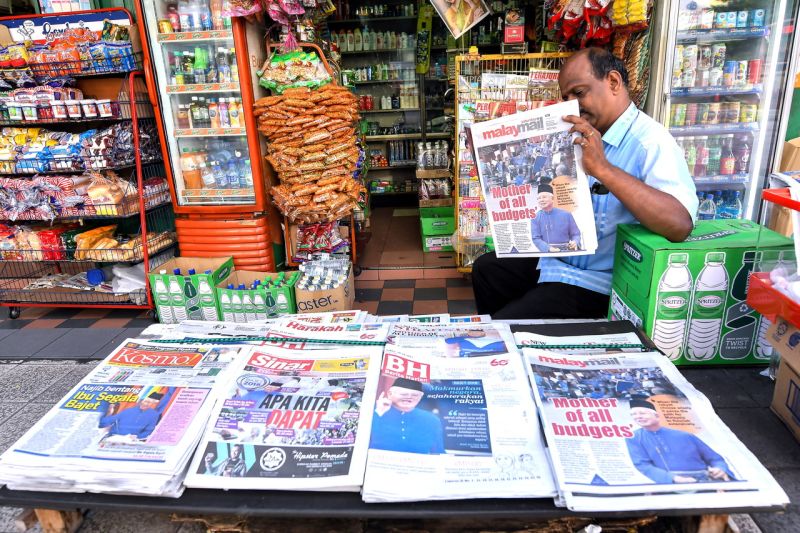KUALA LUMPUR, July 10 — Malaysians now have more trust in local media compared to five years ago, a new study by global market research firm Ipsos Malaysia found.
The increase in trust however, appears to be for traditional media such as newspapers, television and radio, rather than online media platforms.
Ipsos’ research found that Malaysia stood out from many other countries, which reported a decline in trust for traditional media sources.
“Trust in media sources varies greatly across individual countries. For example, 71 per cent in India and 68 per cent in Malaysia trust TV and radio, compared to just 17 per cent in Serbia.
“Country patterns remain stable for trust in different news sources, with Malaysia ranking among the highest along with India, Saudi Arabia and South Africa, while Hungary, Serbia and Poland are often found among the lowest.
“Malaysians report that they trust the media more now than five years ago, and the increase in trust is particularly strong for traditional media such as newspapers, TV and radio,” the research findings read.
Ipsos said that on a global level, 62 per cent of respondents surveyed felt skeptical of the information they receive via online media platforms, saying that the information sources online contains a “great deal or fair amount of fake news”.
Malaysians, along with Indians and South Africans also felt that the media, especially magazines and newspapers, act with good intentions, a split from the 50 per cent, globally, who felt otherwise.
77 per cent also said that they trust the intentions of televisions and radio channels compared to the 52 per cent who felt otherwise. The research also noted that 70 per cent of Malaysians felt that local online news sources act with good intentions, as opposed to 49 per cent globally.
The report said that its findings as to whether people trust their public broadcasters rather than private ones revealed that respondents in Malaysia, Peru, Sweden and Germany place more trust in their public broadcasters.
“In Hungary and Poland, on the other hand, the majority trust private broadcasters over public ones. These results indicate that there is no global trend regarding trust in broadcasters, but that trust levels depend on the country-specific situation of how broadcasting services are organized and controlled,” the report said.
“It is interesting how whilst the rest of the world is declining in terms of their trust in the media, Malaysia’s trust has increased. This was particularly obvious in the data post the 2018 Elections.
“Malaysians also do tend to trust news coming from sources that they are familiar with, giving traditional channels an edge over online news platforms. Within a community like Malaysia where family and key influencers opinions are heavily depended on, this is important for the community to take note as what we say and pass on to the people we know matters, hence we would need to be cautious and careful as to the source and type of information that we passed on,” Ipsos Malaysia managing director Arun Menon said.
Ipsos said that the survey instrument is conducted monthly in 27 countries around the world, via the Ipsos Online Panel system.
The countries reporting in this release are Argentina ,Australia, Belgium, Brazil, Canada, Chile, China, France, Germany, Great Britain, Hungary, India, Italy, Japan, Malaysia, Mexico, Peru, Poland, Russia, Saudi Arabia, Serbia, South Africa, South Korea, Spain, Sweden, Turkey, and the United States (US).
Ipsos said that the results comprised an international sample of 19,541 adults aged between 16 and 74-years-old in most countries, with those between 18 and 74-years-old in Canada, South Africa, Turkey, and the United States, and between 19 and 74-years-old in South Korea.
The firms said that more than 1,000 individuals participated on a country by country basis via the Ipsos Online Panel, except for Argentina, Belgium, Hungary, India, Mexico, Poland, Russia, Saudi Arabi, South Africa, South Korea, Sweden, Turkey,Malaysia, Chile, Peru and Serbia, where each had a sample of approximately more than 500 respondents.



















